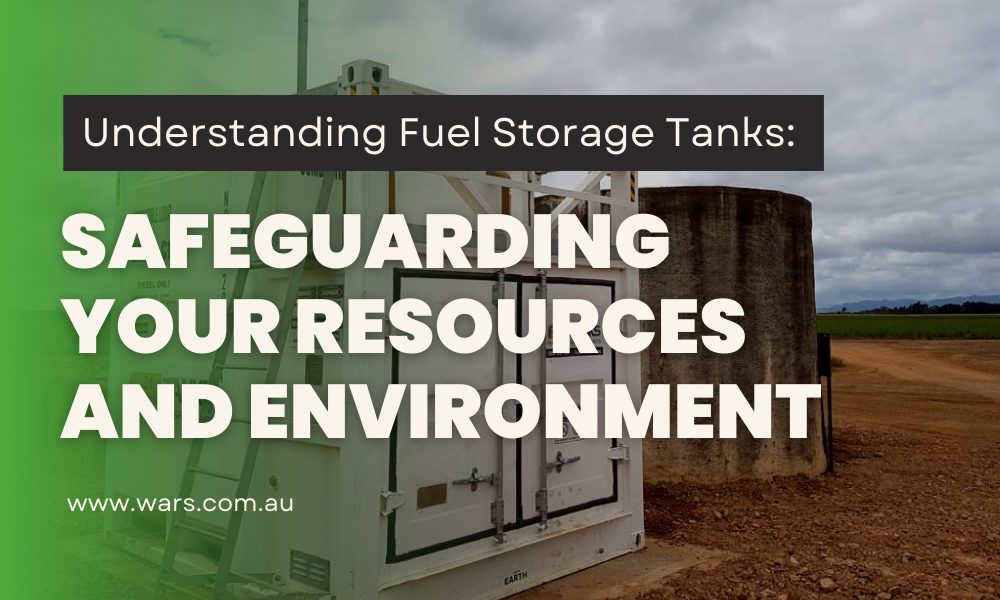
In industrial and commercial operations, efficient management of fuel is paramount. Whether it’s for powering machinery, heating systems, or running vehicles, the proper storage of fuel is critical for smooth operations. This is where fuel storage tanks come into play. Understanding what fuel storage tanks are, their types, uses, and maintenance is essential for ensuring both safety and efficiency in various industries.
What are Fuel Storage Tanks?
Fuel storage tanks are containers specifically designed to store large quantities of fuel safely for an extended period. These tanks are crucial for businesses and industries that require a steady and reliable fuel supply in perth, WA to operate their machinery, vehicles, and equipment efficiently.
Types of Fuel Storage Tanks
Above-Ground Fuel Storage Tanks
These tanks are commonly seen in industrial and commercial settings. They are usually larger in size and can hold significant quantities of fuel. Above-ground tanks are relatively easier to install, inspect, and maintain compared to underground tanks.
Also Read: Above Ground Fuel Storage Tank Checklist in Australia
Underground Fuel Storage Tanks
As the name suggests, these tanks are installed below the ground level. They are often preferred when space constraints or aesthetic concerns come into play. However, installing and maintaining underground tanks can be more complicated and costly due to excavation requirements and potential environmental risks.
Portable Fuel Storage Tanks
These tanks are designed for temporary or portable fuel storage needs. They are commonly used in construction sites, remote locations, and during emergency situations. Mobile fuel storage tanks offer flexibility and convenience, allowing fuel to be transported where it’s needed most.
Double-Walled Fuel Storage Tanks
Double-walled tanks, otherwise known as self-bunded fuel tanks, consist of two layers – an inner tank that holds the fuel and an outer tank that acts as a secondary containment system. This design provides an extra layer of protection against leaks and spills, enhancing safety and environmental protection.
Uses of Fuel Storage Tanks
Industrial Applications
Industries such as manufacturing, construction, agriculture, and mining rely heavily on fuel storage tanks to power their operations. These tanks ensure a steady supply of fuel for generators, machinery, and vehicles, enabling uninterrupted production and productivity.
Commercial Establishments
Businesses like petrol stations, airports, and fleet management companies use fuel storage tanks to store and dispense fuel to customers or vehicles. Properly maintained tanks are essential for meeting regulatory requirements and ensuring customer satisfaction.
Emergency Preparedness
Fuel storage tanks play a crucial role in emergency preparedness and response efforts. They store fuel reserves for backup generators, emergency vehicles, and critical infrastructure, ensuring continuity of essential services during power outages or natural disasters.
Military Applications
Military installations, bases, and vehicles rely on fuel storage tanks to support their operations. These tanks store fuel for aircraft, armoured vehicles, ships, and other equipment, enabling military forces to maintain mobility and readiness.
Importance of Proper Maintenance
Regular inspection and maintenance of fuel storage tanks in perth are essential for ensuring their integrity, safety, and longevity. Some key maintenance tasks include:
- Routine Inspections: Regularly inspecting fuel storage tanks for signs of corrosion, leaks, or structural damage is crucial. Promptly addressing any issues can prevent costly repairs and environmental contamination.
- Cleaning and Sludge Removal: Over time, sediment and sludge can accumulate in fuel storage tanks, compromising fuel quality and tank integrity. Regular cleaning and sludge removal help prevent clogs, corrosion, and microbial growth.
- Leak Detection and Repair: Implementing leak detection systems and promptly repairing any leaks are critical for preventing fuel spills and environmental damage. Early detection can minimize the impact and reduce clean up costs.
- Corrosion Protection: Applying protective coatings, cathodic protection systems, or corrosion inhibitors can help extend the life of fuel storage tanks and prevent corrosion-related failures.
WA Refuelling: Fuel Storage Tanks Are Our Bread and Butter
Fuel storage tanks are vital components of various industries and establishments, providing a safe and reliable means of storing large quantities of fuel. By investing in quality tanks and implementing proactive maintenance practices, businesses can safeguard their fuel resources and contribute to a sustainable future.
At WA Refuelling, fuel storage tanks are who we are and what we know. For more information on our range of fuel storage tanks and related services, visit our website or give us a call on (08) 9359 1988.
